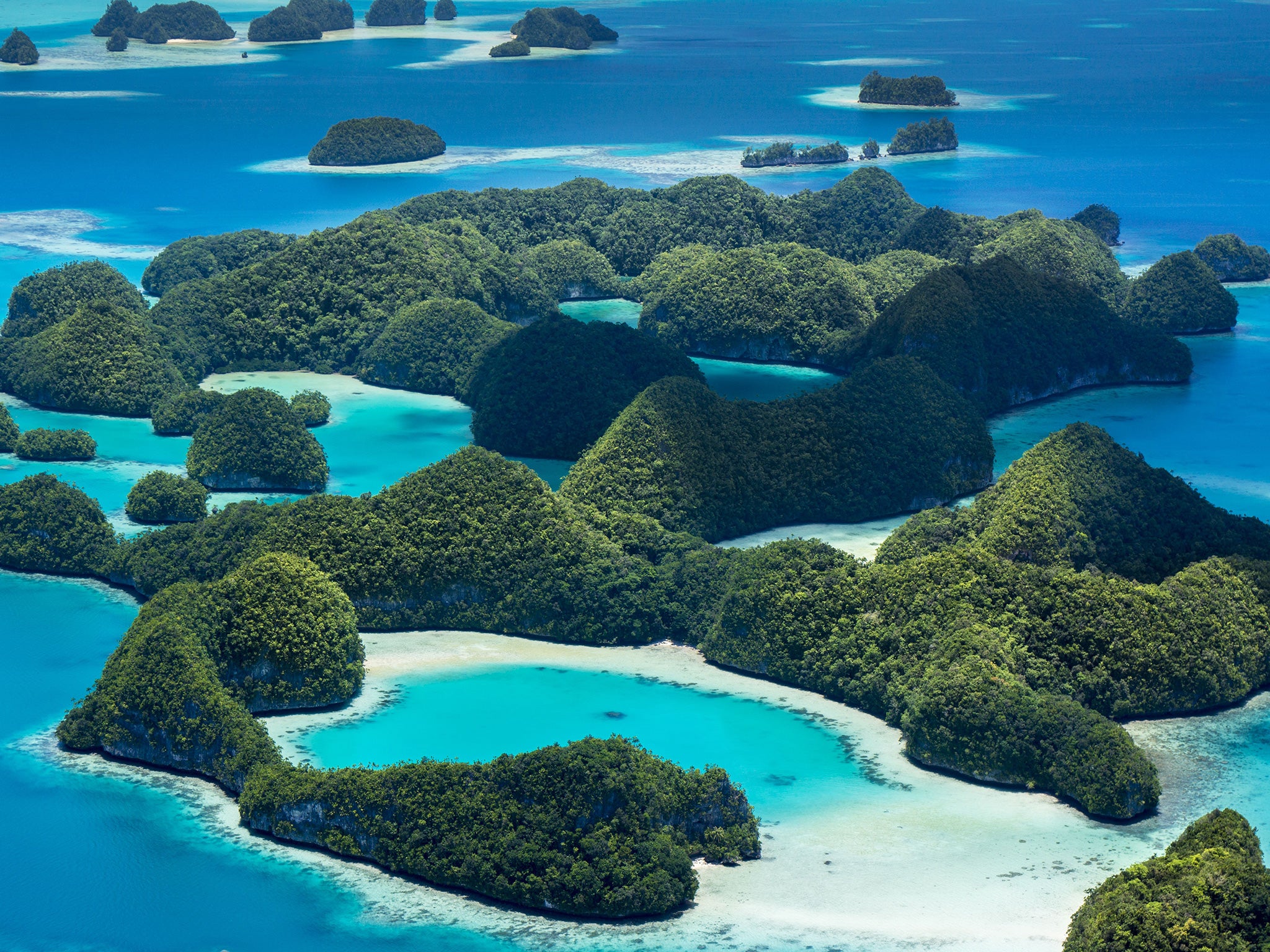The presidential inauguration taking place in January that you don’t know about
It is not just the US swearing in a new president in January, reports Graham Keeley


The new president will take the oath of office at the white-domed Capitol building, which appears to be a copy of the original in Washington.
However, unlike president-elect Joe Biden, this head of state will be unknown to most of the outside world.
More than 9,000 miles from Washington DC, the citizens of Palau will welcome their new leader in the presidential inauguration you have probably never heard of.
The tiny country in the Pacific was the only one in the world to hold an election on the same day as the US on 3 November.
Now it will usher in its new president on 21 January, the day after the world is watching President-elect Biden swear on the Bible.
The dates may be close but there the similarities end between the international superpower and this collection of 350 small islands, which are some three hours’ flight from the Philippines.
Despite the obvious differences – the electorate of the US is 160 million compared to less than 20,000 in Palau – the result obviously matters.
The winner was Surangel Whipps Jr, who secured 56.7 per cent of all the votes, compared to his rival, Raynold Oilouch, who won just 43.3 per cent.
A business person, Whipps Jr won the country’s top office second time round.
In 2016, he lost against his brother-in-law Thomas Remengesau, who has been president four times in total. Politics is a family affair at times here.
Remengesau, more commonly known as Tommy, stood down in November’s elections, leaving Whipps Jr as the outright favourite.
All the candidates were independents as there are no political parties in Palau.
However, this apparently idyllic Pacific mini-state is no stranger to political violence.
Haruo Ignacio Remeliik, the first president, was shot dead outside his home in 1985. Fifteen years later, another presidential candidate admitted being involved in the conspiracy to murder Remeliik.
Palau may be a little known speck in the Pacific but its election is not without its geo-political significance.
Whipps Jr has campaigned on reducing US influence on Palau and its dependence on tourism.
Scuba-diving is the main draw for tourists from the Philippines, Japan or Australia.
Removing American influence might prove a hard task. The US dollar is the legal currency. Whipps Jr was even born in Baltimore, Maryland.
Palau has no military and relies on the US for its defence, a relic of the post-Second World War when it was occupied by US troops until 1947. Palau only gained its independence from the US in 1994.
To many it might be hard to find this dot on the map, but Palau’s strategic importance is growing.
Increasing tensions between the US and China, particularly in the Pacific, mean that the island state could be in the front line of any conflict between these world powers.
The US recently announced plans for a possible military expansion in Palau, which was warmly welcomed by the outgoing president.
Palau has angered China for being one of the 15 nations to recognise Taiwan, whose government congratulated Whipps Jr when he won the presidential election.
Palau is a melting pot of cultures thanks to the influence of centuries of different colonial rulers and powerful neighbours meddling in the islands’ politics.
The majority of the population are Palauans but the islands are a mix of Micronesian, Melanesian, Asian and western cultures. The two official languages are Palauan and English.
Palau’s first colonial rulers were the Spanish who conquered the Philippines in the 16th century and annexed the tiny state.
British traders became regular visitors to the islands by the 18th century and Palau was later conquered by Germany at the end of the 19th century.
The Japanese seized the islands from the Germans in 1914 and, after the First World War, they were placed permanently under the control of Tokyo.
During the Second World War, the US won back the islands after the Battle of Peleliu in 1944, when 2,000 Americans and 10,000 Japanese lost their lives.
After decades of formal US influence, Palau achieved independence in 1981. The prevailing religion is Christianity. Palau belongs to a dwindling band of 20 countries around the world which bans abortion outright.
Environmental issues are important to this tiny state. In 2009, Palau became the first country in the world to establish a conservation area for sharks, covering an area about the same size as France.
Join our commenting forum
Join thought-provoking conversations, follow other Independent readers and see their replies
Comments